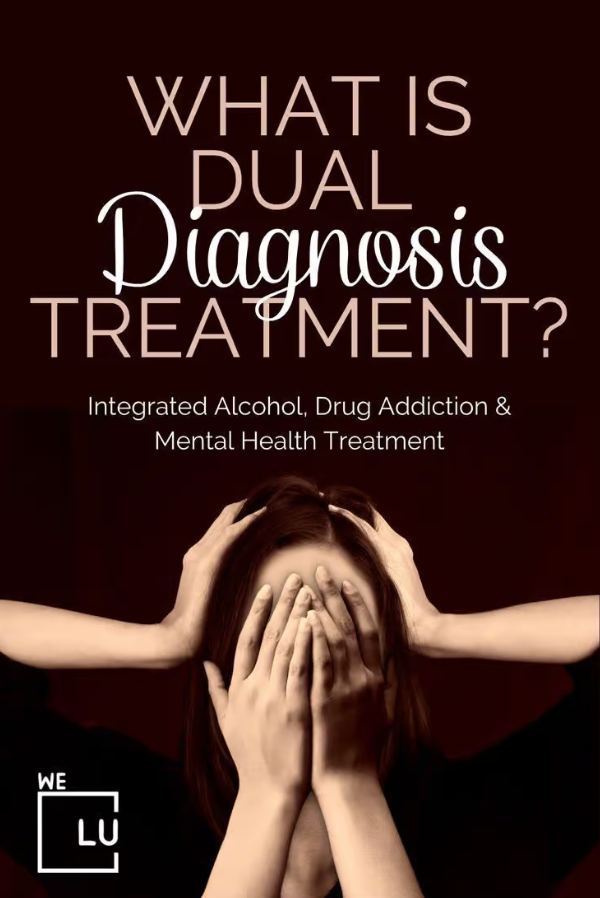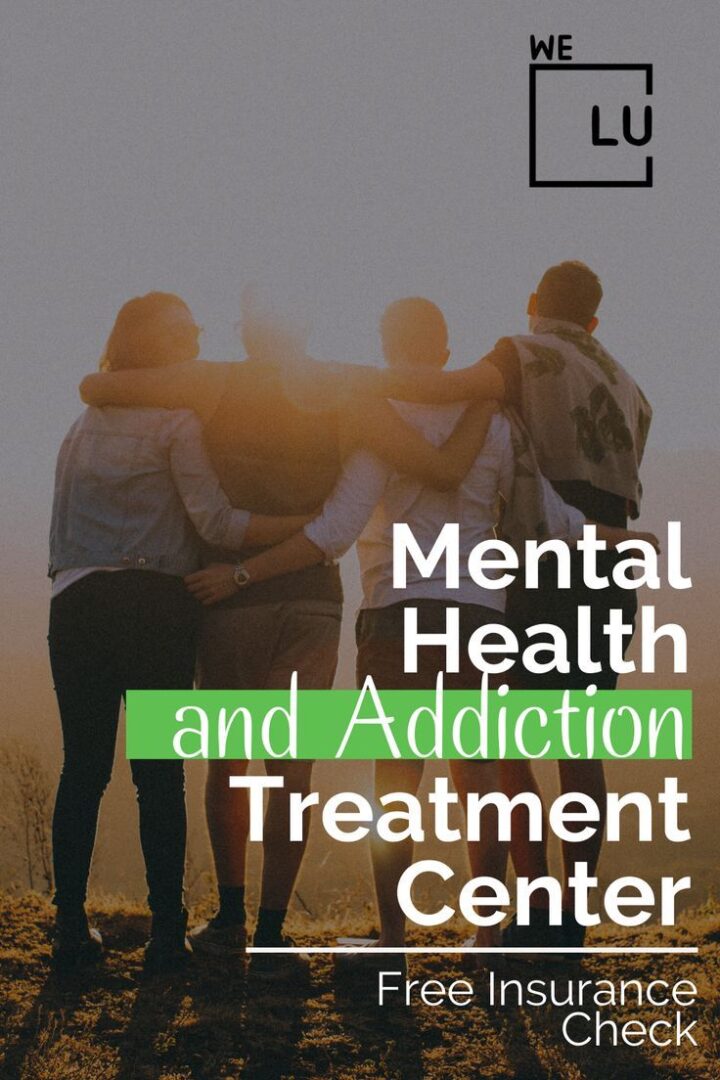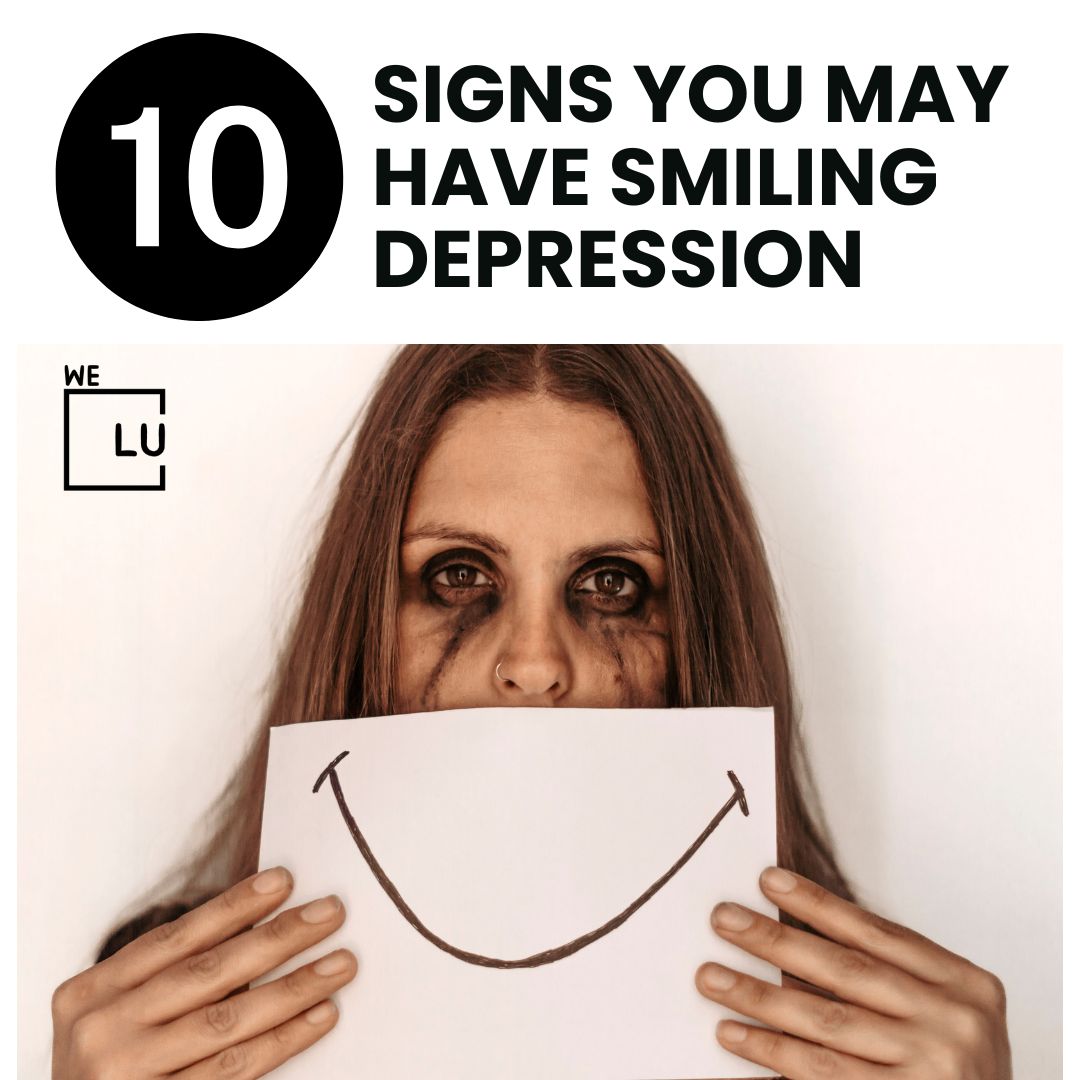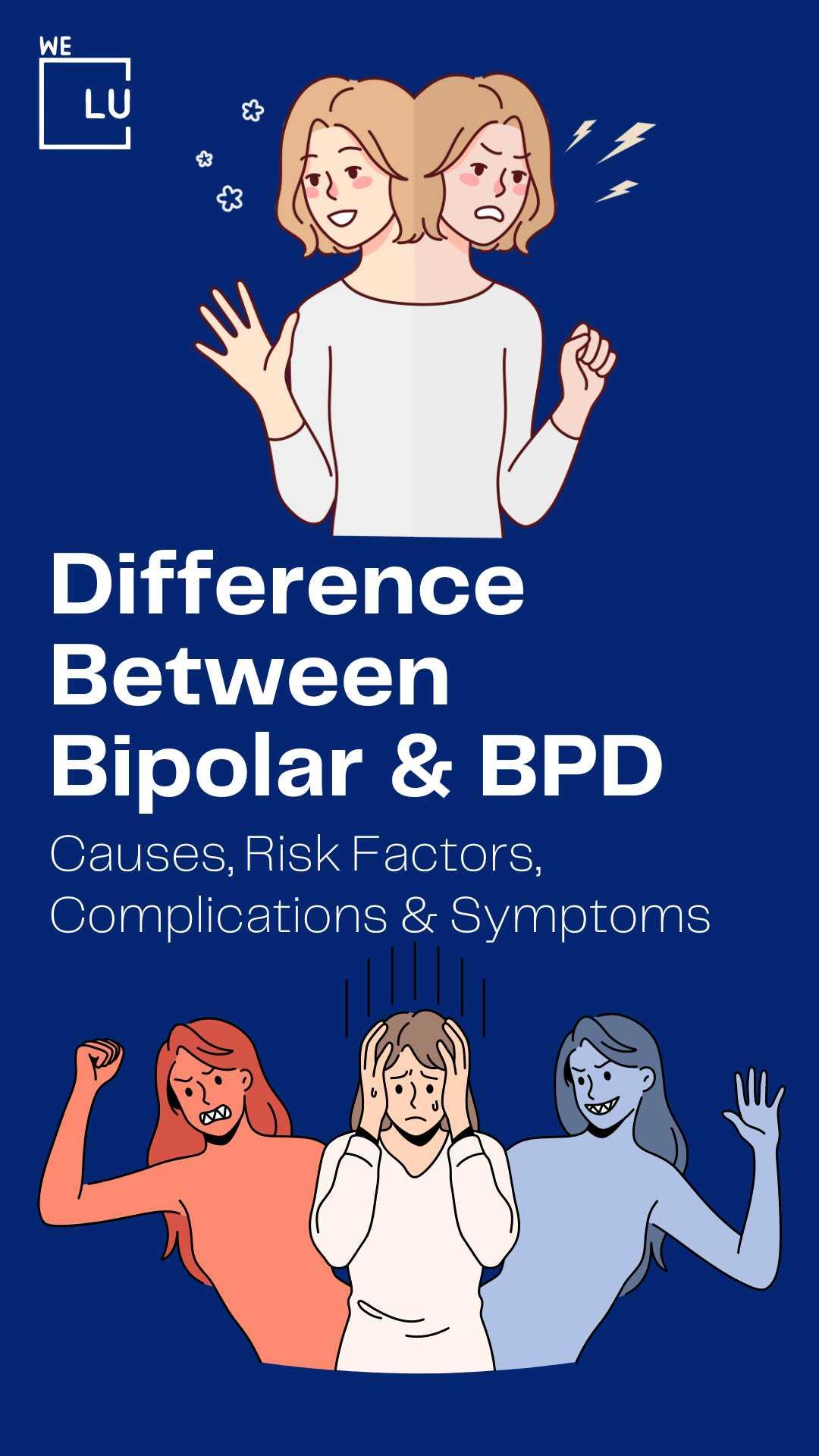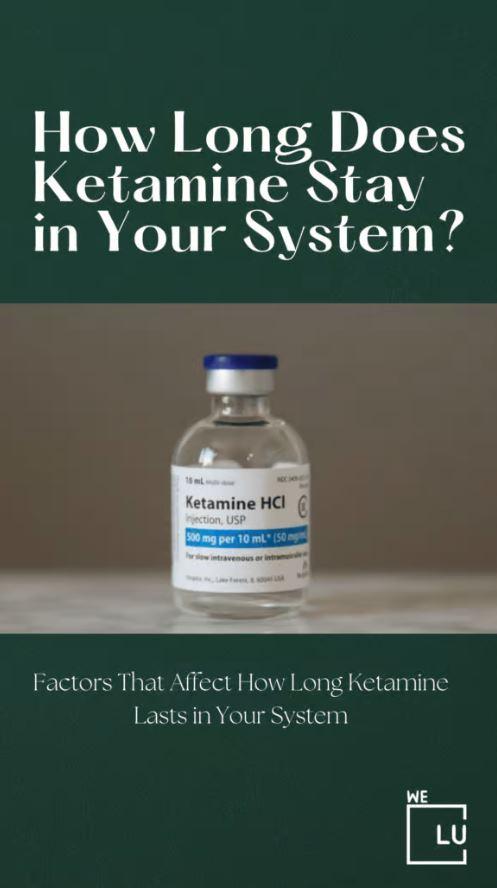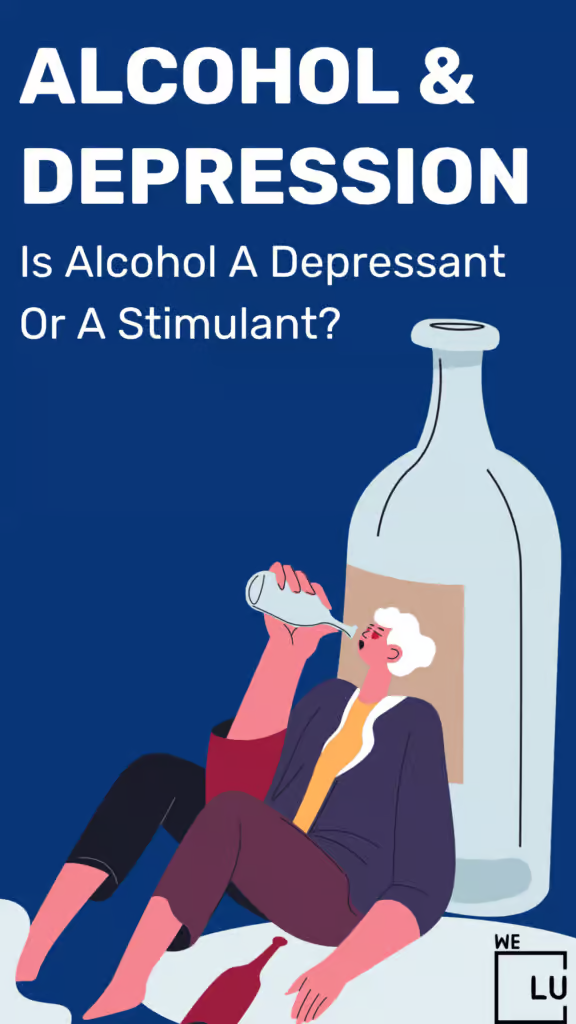The 2 Main OCD Treatments
OCD (obsessive-compulsive disorder) is generally treatable, and the recommended treatment is determined by how much it impacts your life. The two main options are:
- Talking therapy, which helps you confront fears and obsessive thoughts, and
- Medication, often an antidepressant, to adjust brain chemicals.
A brief therapy session is advised for mild cases, while severe cases may need a more extended combination of therapy and pharmaceuticals. Though effective, OCD treatments might take several months for you to see the outcomes.
The Connection Between OCD and Alcoholism and Substance Abuse
According to the NIH (National Institutes of Health), many times, anxiety and sadness are involved or linked to higher drug use and symptoms of OCD. A study on university students (n = 178) explored how depression and anxiety factors affect the relationship between alcohol-related health risks and OCD symptoms. Results showed that certain anxiety-related aspects increased the connection between risky drinking and OCD symptoms, particularly in emotionally vulnerable subgroups of individuals with OCD. [1]
Anxiety disorders, particularly OCD, are strongly correlated with instances of alcoholism and substance abuse. Supporting clients with both addiction and OCD is a significant part of the We Level Up Texas inpatient dual diagnosis treatment center. Reclaim your life today! Call us 24/7 for a free consultation.
What is OCD?
OCD Meaning
- Compulsions are the repeated acts or thoughts that accompany obsessive-compulsive disorder (OCD), which is characterized by recurrent, upsetting thoughts called obsessions. The everyday routine may be disturbed and distressed by these symptoms. Repetitive activities are a common coping mechanism for OCD sufferers, who also use them to stop dangers or worry.
What is Pure O OCD?
- Pure O means ‘purely obsessional.’ Individuals sometimes use this term to define a type of OCD where they undergo distressing, intrusive thoughts. But they don’t have any outward signs of compulsions, such as checking or washing physical items.
OCD Treatments
While obsessive-compulsive disorder (OCD) treatment may not cure it, it helps manage symptoms for better daily living. The severity determines the need for short or long-term treatment.
The main options are talk therapy (psychotherapy) and medication, with a combination often being the most effective.
OCD Medications
Medication could be necessary for severe OCD if therapy doesn’t work. The cornerstone of treatment is a combination of antidepressants called selective serotonin reuptake inhibitors (SSRIs) that raise serotonin levels in the brain. Up to 12 weeks may pass before the advantages of therapy become apparent, and sessions frequently endure for at least a year.
Consult your doctor before altering your drug schedule. Depending on your symptoms, they might need to adjust it gradually. Abruptly stopping the medication might potentially have negative consequences.
Selective Serotonin Reuptake Inhibitors (SSRIs)
- Fluoxetine (Prozac).
- Sertraline (Zoloft).
- Fluvoxamine (Luvox).
- Paroxetine (Paxil).
- Escitalopram (Lexapro).
Serotonin-Norepinephrine Reuptake Inhibitors (SNRIs)
- Venlafaxine (Effexor).
- Duloxetine (Cymbalta).
Antipsychotic Medications
- Risperidone (Risperdal).
- Olanzapine (Zyprexa).
- Quetiapine (Seroquel).
- Aripiprazole (Abilify).
Other Medications for OCD
Tricyclic Antidepressants (TCAs)
- Clomipramine (Anafranil).
Augmentation Agents
- Buspirone (Buspar).
- Lamotrigine (Lamictal).
Benzodiazepines
- Clonazepam (Klonopin).
- Lorazepam (Ativan).
OCD Therapy
For many OCD sufferers, cognitive-behavioral treatment (CBT) is beneficial. Exposure and Response Prevention (ERP) is one of the components that educates you to stop doing obsessive routines and progressively exposes you to things you dread. ERP can help people manage their obsessions and compulsions and improve their quality of life, but it takes practice.
- Cognitive-Behavioral Therapy (CBT):
- Exposure and Response Prevention (ERP).
- Cognitive Therapy.
- Acceptance and Commitment Therapy (ACT).
- Dialectical Behavior Therapy (DBT).
- Mindfulness-Based Cognitive Therapy (MBCT).
- Psychodynamic Therapy.
- Interpersonal Therapy (IPT).
- Family Therapy.
- Support Group Therapy.
- Eye Movement Desensitization and Reprocessing (EMDR).
- Habit Reversal Training.

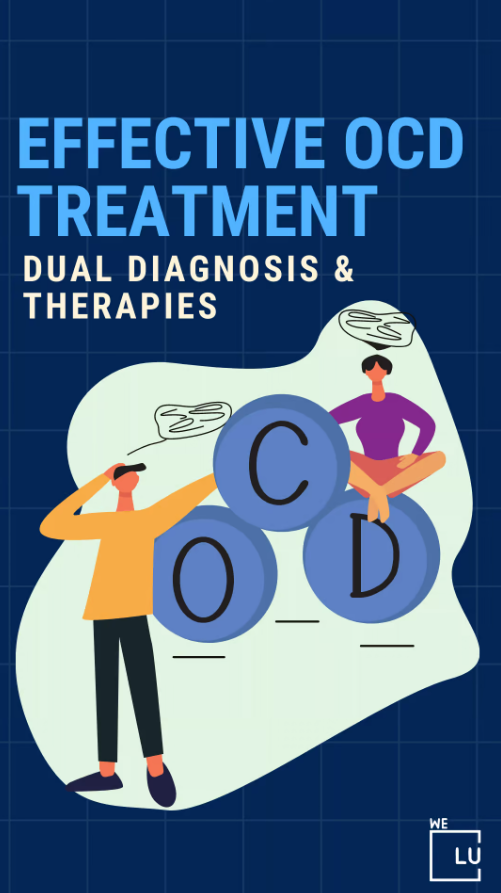
Skip To:
Learn More:
OCD Symptoms in Adults
In adults, OCD shows up as troubling thoughts (obsessions) and repetitive actions or thoughts (compulsions), causing distress and disruption in daily life. Seeking professional help, like therapy or medication, is essential for managing and easing these symptoms.
5 Common Types of OCD Symptoms
Contamination OCD
- Excessive fear of germs.
- Avoidance of touching particular objects or surfaces.
- Compulsive handwashing or cleaning rituals.
- Fear of becoming sick or causing harm to oneself or others.
- Avoidance of public places or situations perceived as unclean.
- Anxiety and distress related to contamination concerns.
- Repeated checking behaviors to ensure cleanliness and safety.
- Difficulty in functioning due to preoccupation with contamination.
- Intrusive and distressing thoughts about contamination.
- Ritualistic behaviors to neutralize contamination fears.
Checking OCD
- Persistent doubts and fears.
- Excessive fear of something terrible happening.
- Compulsive checking behaviors.
- Repeatedly checking doors, locks, or appliances.
- Frequent reassurance-seeking from others.
- Time-consuming checking rituals.
- Emotional distress and anxiety related to the need to check.
- Impaired daily functioning due to checking compulsions.
OCD Order and Symmetry
- Obsession with symmetry and exactness.
- Need for objects or items to be arranged in a specific order.
- Compulsive need to align or organize belongings.
- Distress when things are perceived as asymmetrical or disorganized.
- Ritualistic behaviors related to achieving symmetry.
- Difficulty in completing tasks if not done with precision.
- Inability to tolerate deviations from a set order or arrangement.
- Repeated arranging or rearranging of items.
- Anxiety and discomfort when surroundings are not orderly.
- Impact on daily life due to the preoccupation with order and symmetry.
Hoarding OCD
- Difficulty discarding possessions, regardless of their value.
- Excessive acquisition of items, often leading to clutter.
- Distress or anxiety when faced with discarding items.
- Compulsive hoarding of items that others may consider worthless.
- Difficulty organizing possessions and living spaces.
- Avoidance of visitors due to embarrassment about clutter.
- Health and safety risks associated with hoarding behaviors.
- Resistance or refusal to seek help for hoarding-related issues.
OCD Intrusive Thoughts
- Disturbing and unwanted thoughts.
- Fear of causing harm to oneself or others.
- Violent or aggressive thoughts that cause distress.
- Sexual or taboo thoughts that are distressing.
- Repetitive and painful thoughts about religious or moral concerns.
- Fear of being responsible for a catastrophic event.
- Intrusive thoughts that go against personal values.
- Attempts to suppress or neutralize painful thoughts.
- Mental rituals or compulsions to alleviate anxiety.
- Impact on daily functioning due to the preoccupation with intrusive thoughts.
If you’re struggling with depressive disorders and substance abuse, get resources about treatment counseling today. Start getting support with a free call to our mental health and addiction hotline.
Get Help. Get Better. Get Your Life Back.
Searching for Accredited Drug and Alcohol Rehab Centers Near You? We Level Up Texas Is Opening Soon!
Even if you have failed previously and relapsed, or are in the middle of a difficult crisis, we stand ready to support you. Our trusted behavioral health specialists will not give up on you. When you feel ready or just want someone to speak to about therapy alternatives to change your life call us. Even if we cannot assist you, we will lead you to wherever you can get support. There is no obligation. Call our network hotline today.
FREE Addiction Hotline – Call 24/7What is Relationship OCD?
Intimacy, relationships, and obligations have particular significance. On the other hand, relationship OCD can result from excessive love-related fears and anxiety, which can negatively impact your relationships with others, particularly those who are close to you. Symptoms are:
- Persistent doubts about the relationship.
- Excessive need for reassurance.
- Intrusive thoughts questioning the partner’s suitability.
- Overanalyzing behaviors and actions of the partner.
- The constant fear of making the wrong decision about the relationship.
- Compulsive comparison of the current relationship to past ones.
- Repeatedly seeking confirmation of love or commitment.
- Excessive fear of harming the partner emotionally.
- Compulsive checking of feelings for the partner.
- Avoidance of relationship-related situations due to anxiety.
What Causes OCD?
The cause of obsessive-compulsive disorder (OCD) is not fully known, but it likely involves various factors, including the following:
- Heritability (up to 65% in children, 45% in adults).
- Mutated NMDA neurotransmitter in the brain, linked to OCD-like behavior.
- Inability to cope with uncertainty.
- Increased sense of responsibility.
- Magical thinking.
- PANDAS (pediatric autoimmune neuropsychiatric disorders associated with streptococcal infections).
- Streptococcus infection as a trigger.
- Autoimmune antibodies against basal ganglia.
- Sudden onset OCD.
- Childhood acute neuropsychiatric symptoms (CANS).
- Family history increases risk.
- Association with other neurological disorders:
- Parkinson’s disease.
- Sydenham chorea.
- Traumatic brain injury (TBI).
- Tourette syndrome.
- Huntington disease.
- Epilepsy.
OCD Test and Diagnosis
The following methods can be used to diagnose OCD:
- Psychological Assessment: Talk about your ideas, emotions, signs, and actions to find obsessive or compulsive habits lowering your quality of life. Family or friends may be involved with your permission.
- Physical Exam: Rule out other issues causing symptoms and check for related complications.
To create a customized approach to combat OCD, collaboration with your mental health expert is essential. You make it possible to employ different therapies, such as mindfulness and CBT, by being transparent about your experiences. This collaborative approach ensures a thorough and individualized road to recovery by taking into account your particular obstacles and even addressing any additional mental health concerns you may be dealing with. Improving your general well-being is crucial for a more fruitful and long-lasting recovery process than only treating the symptoms of OCD.
OCD and Addiction Co-occurring Disorder
Substance abuse often starts as a way to cope with mental health issues like OCD. People may use alcohol or drugs for temporary relief, which can turn into repetitive self-medication and addiction. Even those without initial mental health problems can develop psychological drug dependence, leading to issues like OCD. If untreated, these dual-diagnosis problems can worsen substance abuse.
As we recognize addiction as a mental disorder, the relationship between substance abuse and anxiety disorders, including OCD, becomes more complex. Many treatment centers lack knowledge of dual-diagnosed conditions, treating them separately or not at all. Our Texas dual diagnosis center has professionals trained to address co-occurring disorders, leading to high success rates.
Some of the most successful therapies for dual diagnosis treatments are:
- Medication Assisted Treatment and Management.
- Cognitive Behavioral Therapy (CBT).
- Dialectical Behavior Therapy (DBT).
- Individual Counseling.
- Group Therapy.
- Support Groups.
- Motivational Interviewing.
- Family Therapy.
- Mindfulness-Based Therapies.
- Holistic and Evidence-Based Therapies.
If you’re seeking assistance with your rehab journey, reach out to a We Level Up Texas treatment professional today—your call is free and confidential.
Opening Soon! First-Class Facilities & Amenities
World-Class High-Quality Addiction & Mental Health Rehabilitation Treatment
Coming Soon! Rehab Centers TourRenowned Addiction Centers. Serene Private Facilities. Inpatient Rehab Programs Vary.
FREE Addiction Hotline – Call 24/7Proven recovery success experience, backed by a Team with History of:
- 15+ Years Experience
- 100s of 5-Star Reviews
- 10K+ Recovery Successes
- Low Patient to Therapist Ratio
- Onsite Medical Detox Center
- Comprehensive Dual-Diagnosis Treatment
- Complimentary Family & Alumni Programs
- Coaching, Recovery & Personal Development Events
We Level Up Texas Dual Diagnosis and OCD Treatment
At We Level Up Texas, our healthcare team believes in simultaneously treating both the root causes and addiction for a better chance of achieving lasting recovery. By addressing mental health issues linked to alcohol or drug dependency, we help individuals move closer to long-term sobriety. We also believe in personalized recovery.
Our team of experts conducts thorough physical, psychological, and nutritional assessments when clients arrive. This helps us understand their unique issues, like OCD or other anxiety disorders, for a customized approach. Our experienced team ensures accurate diagnosis, especially when dealing with complex symptoms alongside alcohol and substance use disorders.
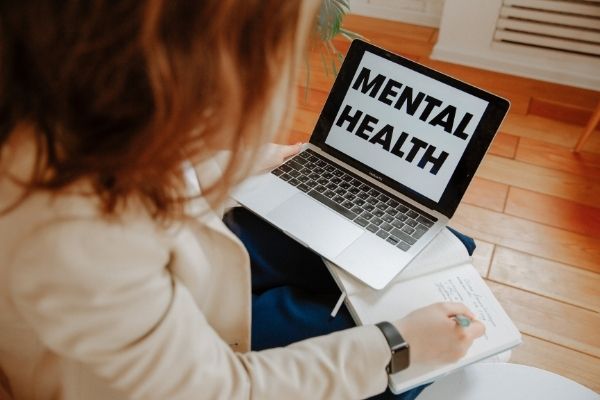
Treating Both OCD and Addiction
Substance use problems often stem from coping with self-esteem or social issues or as a way to self-medicate. Acknowledging mental health concerns is crucial for effective treatment alongside drug addiction. Professional guidance helps identify underlying conditions, and dual diagnosis treatment involves detox and focused residency programs for long-term recovery.
For psychiatric disorders like alcohol use or substance abuse, knowing and understanding your conditions—OCD, anxiety, PTSD, depression—plays a crucial role in recognizing and addressing your treatment needs.
Recognizing a potential mental illness can be challenging, but accurate diagnosis and treatment are crucial for effective drug addiction recovery. Trained medical professionals are vital for identifying these underlying conditions.
Are you searching for an OCD treatment near you? Get a free rehab insurance check without any obligation. The result can help you explore several treatment options.
What Do You Know About Obsessive-Compulsive Disorder? The 4 Types of OCD | Informative Video
Start a New Life
Begin with a free call to an addiction & behavioral health treatment advisor. Learn more about our dual-diagnosis programs. The We Level Up treatment center network delivers recovery programs that vary by each treatment facility. Call to learn more.
- Personalized Care
- Caring Accountable Staff
- World-class Amenities
- Licensed & Accredited
- Renowned w/ 100s 5-Star Reviews
We’ll Call You
Search We Level Up Texas OCD Treatment, Dual Diagnosis Topics, and Resources
Sources
- Randazza MP, McKay D, Bakhshaie J, Storch EA, Zvolensky MJ. Unhealthy Alcohol Use Associated with Obsessive-Compulsive Symptoms: The Moderating Effects of Anxiety and Depression. J Obsessive Compulsive Relat Disord. 2022 Jan;32:100713. Doi: 10.1016/j.jocrd.2022.100713. Epub 2022 Feb 8. PMID: 35242506; PMCID: PMC8887883.
- Brock H, Hany M. Obsessive-Compulsive Disorder. [Updated 2023 May 29]. In: StatPearls [Internet]. Treasure Island (FL): StatPearls Publishing; 2023 Jan-. Available from: https://www.ncbi.nlm.nih.gov/books/NBK553162/
- Janardhan Reddy YC, Sundar AS, Narayanaswamy JC, Math SB. Clinical practice guidelines for Obsessive-Compulsive Disorder. Indian J Psychiatry. 2017 Jan;59(Suppl 1): S74-S90. Doi: 10.4103/0019-5545.196976. PMID: 28216787; PMCID: PMC5310107.
- Stein DJ, Costa DLC, Lochner C, Miguel EC, Reddy YCJ, Shavitt RG, van den Heuvel OA, Simpson HB. Obsessive-compulsive disorder. Nat Rev Dis Primers. 2019 Aug 1;5(1):52. Doi: 10.1038/s41572-019-0102-3. PMID: 31371720; PMCID: PMC7370844. A study related to Do I Have OCD?
- Mancebo MC, Grant JE, Pinto A, Eisen JL, Rasmussen SA. Substance use disorders in an obsessive-compulsive disorder clinical sample. J Anxiety Disorder. 2009 May;23(4):429-35. Doi: 10.1016/j.janxdis.2008.08.008. Epub 2008 Sep 6. PMID: 18954963; PMCID: PMC2705178.
- Virtanen S, Kuja-Halkola R, Sidorchuk A, Fernández de la Cruz L, Rück C, Lundström S, Suvisaari J, Larsson H, Lichtenstein P, Mataix-Cols D, Latvala A. Association of Obsessive-Compulsive Disorder and Obsessive-Compulsive Symptoms With Substance Misuse in 2 Longitudinal Cohorts in Sweden. JAMA Netw Open. 2022 Jun 1;5(6):e2214779. Doi: 10.1001/jamanetworkopen.2022.14779. PMID: 35666504; PMCID: PMC9171556.
- Del Casale A, Sorice S, Padovano A, Simmaco M, Ferracuti S, Lamis DA, Rapinesi C, Sani G, Girardi P, Kotzalidis GD, Pompili M. Psychopharmacological Treatment of Obsessive-Compulsive Disorder (OCD). Curr Neuropharmacol. 2019;17(8):710-736. Doi: 10.2174/1570159X16666180813155017. PMID: 30101713; PMCID: PMC7059159.
- Pittenger C, Bloch MH. Pharmacological treatment of obsessive-compulsive disorder. Psychiatr Clin North Am. 2014 Sep;37(3):375-91. Doi: 10.1016/j.psc.2014.05.006. Epub 2014 Jul 24. PMID: 25150568; PMCID: PMC4143776. Research related to OCD definition: What does OCD mean? Medication for OCD; signs of OCD; What is OCD mean? Causes of OCD; medications for OCD.
- Kim HS, Hodgins DC, Torres AR, Fontenelle LF, do Rosário MC, de Mathis MA, Ferrão YA, Miguel EC, Tavares H. Dual diagnosis of obsessive-compulsive and compulsive buying disorders: Demographic, clinical, and psychiatric correlates. Compr Psychiatry. 2018 Oct;86:67-73. Doi: 10.1016/j.comppsych.2018.07.013. Epub 2018 Jul 29. PMID: 30081209.
- Murphy DL, Timpano KR, Wheaton MG, Greenberg BD, Miguel EC. Obsessive-compulsive disorder and its related disorders: a reappraisal of obsessive-compulsive spectrum concepts. Dialogues Clin Neurosci. 2010;12(2):131-48. Doi: 10.31887/DCNS.2010.12.2/dmurphy. PMID: 20623919; PMCID: PMC3181955.
- Sharma E, Sharma LP, Balachander S, Lin B, Manohar H, Khanna P, Lu C, Garg K, Thomas TL, Au ACL, Selles RR, Højgaard DRMA, Skarphedinsson G, Stewart SE. Comorbidities in Obsessive-Compulsive Disorder Across the Lifespan: A Systematic Review and Meta-Analysis. Front Psychiatry. 2021 Nov 11;12:703701. Doi: 10.3389/fpsyt.2021.703701. PMID: 34858219; PMCID: PMC8631971.
